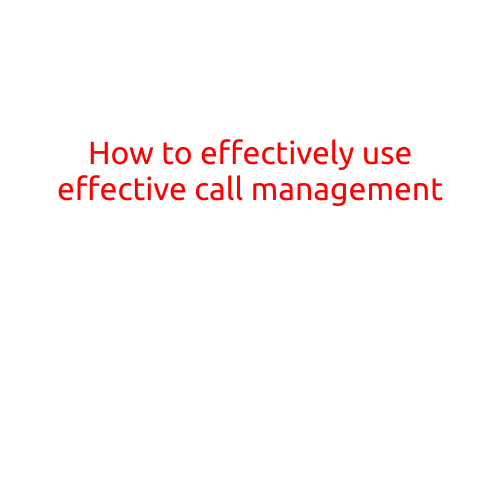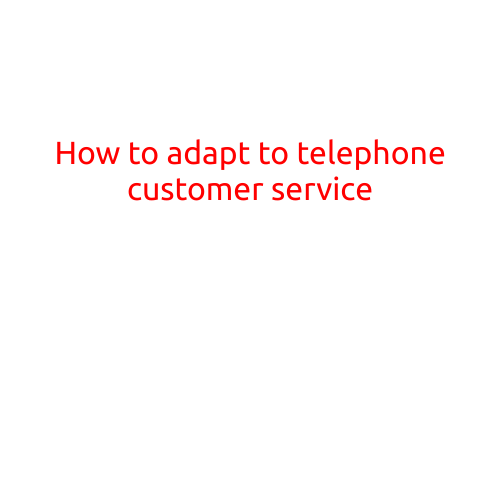
How to Effectively Use Effective Call Management
In today’s fast-paced business world, effective call management is crucial for staying ahead of the competition. With the rise of digital communication channels, it’s easy to get sidetracked and neglect the importance of phone calls in your daily operations. However, phone calls remain one of the most effective ways to build relationships, close deals, and resolve customer issues. In this article, we’ll explore the benefits of effective call management and provide actionable tips on how to use it to boost your business productivity and success.
Why Effective Call Management Matters
Effective call management is about more than just answering and returning calls. It’s about managing your time, prioritizing tasks, and streamlining your workflow to ensure that every call adds value to your business. Here are some reasons why effective call management matters:
- Improved Customer Satisfaction: Effective call management helps you respond promptly to customer inquiries, resolve issues efficiently, and provide exceptional service, which can lead to increased customer loyalty and retention.
- Increased Productivity: By managing your calls effectively, you can reduce the time spent on unimportant calls, focus on high-priority tasks, and increase your overall productivity.
- Better Time Management: Effective call management helps you prioritize your tasks, allocate your time wisely, and avoid time-wasting activities, such as constantly checking voicemails or waiting for calls to return.
Tips for Effective Call Management
Now that you understand the importance of effective call management, here are some actionable tips to help you get started:
- Set Clear Goals: Define your objectives for each call, whether it’s to make a sale, resolve an issue, or gather information.
- Use a Call Log: Keep a record of every call, including the caller’s name, number, and the purpose of the call.
- Prioritize Calls: Identify high-priority calls that require immediate attention and schedule them accordingly.
- Use Technology to Your Advantage: Utilize call management software or apps to streamline your workflow, track calls, and receive reminders.
- Practice Active Listening: Pay attention to the caller’s concerns, ask clarifying questions, and respond accordingly to ensure you understand their needs.
- Keep it Brief: Keep calls concise and to the point, focusing on the essential information and next steps.
- Follow Up: After a call, follow up with an email or report to ensure that any agreed-upon tasks are completed and that the caller is satisfied.
Best Practices for Effective Call Management
By incorporating the following best practices into your call management strategy, you’ll be well on your way to maximizing the value of your phone calls:
- Time-Block Your Calls: Schedule specific times for calls to ensure that you have uninterrupted attention.
- Use a Designated Call Handler: Assign a specific person to handle calls, freeing up your time for more important tasks.
- Implement a Call-Back System: Return calls in a timely manner to maintain a high level of customer satisfaction.
- Conduct Regular Audits: Monitor your call logs to identify areas for improvement and optimize your call management strategy.
Conclusion
Effective call management is a crucial component of any successful business. By following the tips and best practices outlined in this article, you can maximize the value of your phone calls, improve customer satisfaction, and boost your productivity. Remember to set clear goals, use a call log, prioritize calls, and practice active listening to ensure that every call adds value to your business. With effective call management, you’ll be better equipped to stay ahead of the competition and achieve your business goals.





